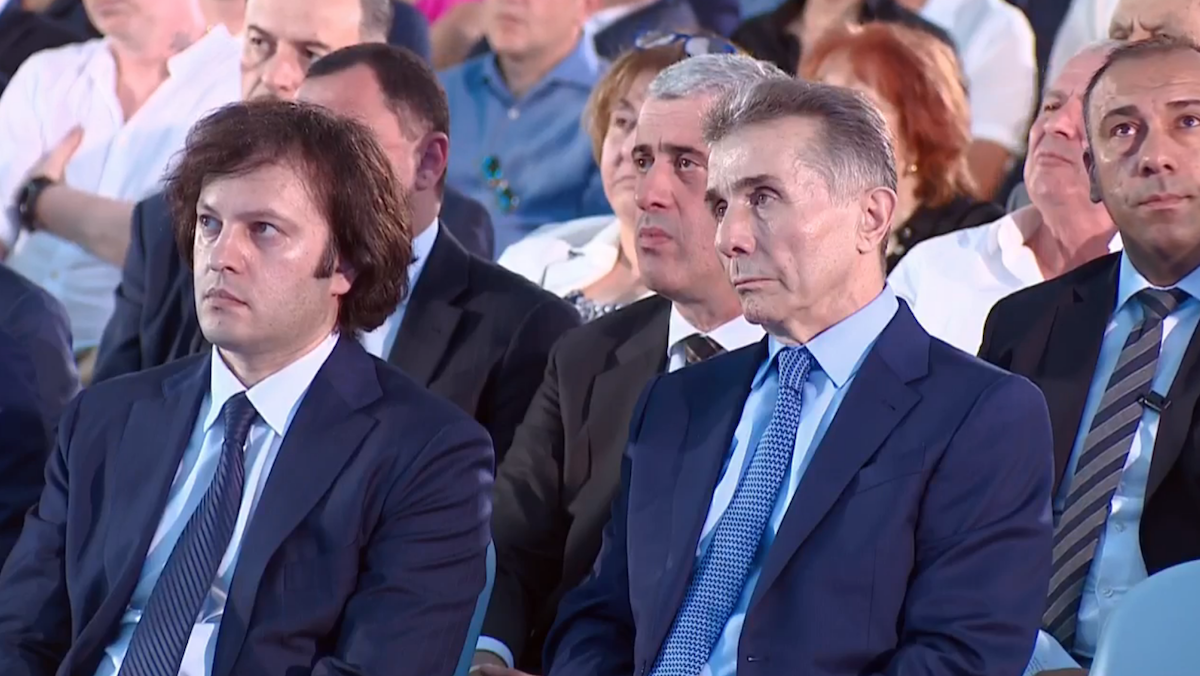IDFI study: 71% of Georgian state agencies do not publish grant information
While the Georgian government speaks about the lack of transparency in the activities of non-governmental organizations, 71% of state agencies themselves do not publish information about their grants. This is according to a study by the Institute for Development of Freedom of Information (IDFI).
On August 26, 2013, under prime minister Bidzina Ivanishvili, the Georgian government issued a decree requiring all ministries to publish such information on their “respective electronic resources”. This includes:
- Annual reports
- Names, biographies, and photos of leaders
- Information about the person responsible for providing public information and relevant legal acts
- Budget details
IDFI reports that 71% of the state agencies they examined (including parliament, government, and ministries) did not publish complete information about grants received and issued in 2023 on their websites, and 65% did not publish an annual report on their activities.
The Institute also notes that none of these agencies provided complete documentation on restaurant and travel expenses, information on vehicles in their inventory with detailed specifications, or a list of freelance positions.
The Georgian government administration has not published financial information since 2014.
Additionally, the Ministry of Culture and Sports has not had a website for over three years.
To illustrate the importance of adopting the “foreign agent” law, the ruling party “Georgian Dream” published data on approximately 500 non-governmental organizations on July 15.
According to this data:
- 51% of organizations do not have a website.
- 62% do not list the name of the grantor on their website.
- 68% do not specify the project name.
- 97% do not publish an annual report.
- 70% do not provide information about their team.
What’s important to know about Georgia’s ‘foreign agents’ law?
- The “Law on Transparency of Foreign Influence” was initiated by the ruling party “Georgian Dream” and passed by Parliament in its third reading on May 28, 2024.
- The Parliament adopted this law despite massive protests, persistent calls from Georgia’s Western partners, and the opinion of the Venice Commission of the Council of Europe.
- After the passage of the law, the US announced the first package of sanctions against the “Georgian Dream” government. Secretary of State Antony Blinken warned of a “comprehensive review of US-Georgia cooperation.”
- The European Union also took retaliatory measures. In early July, the EU halted €30 million in aid to Georgia and warned of additional measures to come. Senior EU officials have repeatedly indicated that this law distances Georgia from the EU.
- On July 11, the U.S. House Committee on Foreign Affairs passed the Megobari Act, which imposes sanctions on those involved in passing the “foreign agents” law.
The Georgian government’s main argument is that similar laws exist in the U.S. and several European countries, including France. According to Georgian Dream, every country has the right to protect itself from foreign influence and demand transparency from its organizations.
However, this comparison is inaccurate because:
The American law FARA (Foreign Agents Registration Act), to which Georgian Dream refers, was enacted in the U.S. in 1938, before World War II, and aimed to protect the American public from Nazi propaganda. Neither then nor now did FARA apply to America’s allies and friendly countries.
In France, the law on “Foreign State Influence” includes a specific list of countries to which the law applies. This list comprises countries whose influence France considers a threat, including Russia, China, Turkey, and Iran. The French version also specifically states that this law does not apply to EU countries. The Georgian version lacks such provisions. Consequently, this law directly impacts organizations funded by the U.S. and the EU—friendly and partner countries that support democratic processes and numerous vital projects in Georgia, ranging from healthcare and infrastructure to strengthening civil society.
Furthermore, FARA stipulates that the law does not apply to media or NGOs, only to lobbying organizations. The Georgian version does not have this clarification.
Overall, the Georgian law is similar to the Russian law, which primarily affected media and the NGO sector. As a result, all non-governmental and media organizations not controlled by the Kremlin have been shut down in Russia. Hence, the Georgian law has been dubbed the “Russian law.”
It’s also important that this law contradicts EU legislation. When a similar law was adopted in Hungary, it was annulled by the European Court of Human Rights because it was directly aimed at silencing the media and oppressing NGOs.
The “Law on Transparency of Foreign Influence” in Georgia is set to come into effect by September 2024 when a special registry will be ready for “foreign agent organizations” to register. This applies to all organizations where over 20% of funding comes from foreign grants. In a small and not very wealthy country like Georgia, this includes the vast majority of non-governmental organizations.
Many Georgian NGOs and media refuse to register in the registry as they find the label of “organizations representing the interests of foreign states” offensive. “We work honestly in our country, so why should we be called ‘bearers of foreign state interests’?” they protest.
Some small organizations are already announcing their imminent closure. For instance, the NGO Fair Trees Foundation reported that its project to create a free children’s dental clinic would be suspended due to the law’s adoption.
Additionally, almost all animal protection organizations in Georgia rely on foreign grants, and thus the law’s adoption could lead to the closure of many of these organizations.



















